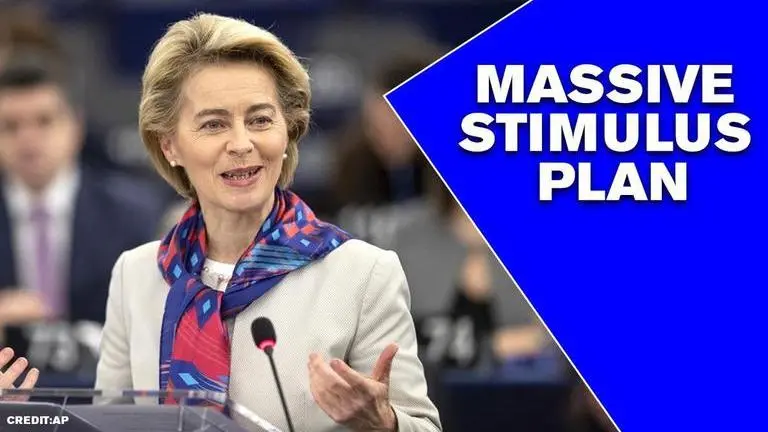Updated 27 May 2020 at 07:27 IST
EU to announce massive stimulus plan exceeding 1 trillion euros for post-COVID-19 recovery
In a bid to revive the economy from the Coronavirus slump, the EU will unveil a stimulus plan with a mix of grants, loans, & guarantees that exceeds 1 tn euros
- World News
- 2 min read

In a bid to revive the economy from the Coronavirus slump, the European Commission will on Wednesday unveil a stimulus package with a mix of grants, loans, and guarantees that exceeds 1 trillion euros, triggering controversy even before the announcement.
As the 27-nation bloc expects its deepest-ever recession this year, the package aims to provide financial support to countries and sectors worst hit by the COVID-19 pandemic so they recover quickly and protect the single EU market of 450 million people from being shattered by varying economic growth and wealth levels. The decision comes at a time when European nations such as Italy, Greece, France, Portugal, or Spain are burdened with high debt and are finding it more difficult to restart their economies through borrowing.
Under this disputed package, the Commission will borrow cheaply on the market and then give some of the borrowed money, rather than lend it on, to those countries who need it most. The package would also provide loans and guarantees that could draw in many times more private cash by reducing the risk of various investments. However, the grants which will be financed through joint borrowing poses a concern for the Netherlands, Sweden, Austria, or Denmark. The borrowing will have to be repaid, which indicates higher national contributions to the EU budget in the future or new taxes assigned to the EU.
Advertisement
EU to propose new taxes
The Commission is expected to propose new taxes, following up on its proposal from 2018 when it asked EU governments to give revenues from a tax on plastics and from the CO2 emissions trading scheme along with national corporate taxes.
Advertisement
The Commission also proposed to phase out all the rebates that various countries enjoy on their national contributions to the EU budget, half the amount of customs duties are kept by the governments, and a bigger share of the Value Added Tax is paid to the EU. The recovery money is spent by governments on making economic transitions that are climate neutral, such as emitting no more CO2 than it absorbs by 2050 and adapting to the digital age which are both EU priorities.
Published By : Gloria Methri
Published On: 27 May 2020 at 07:26 IST
